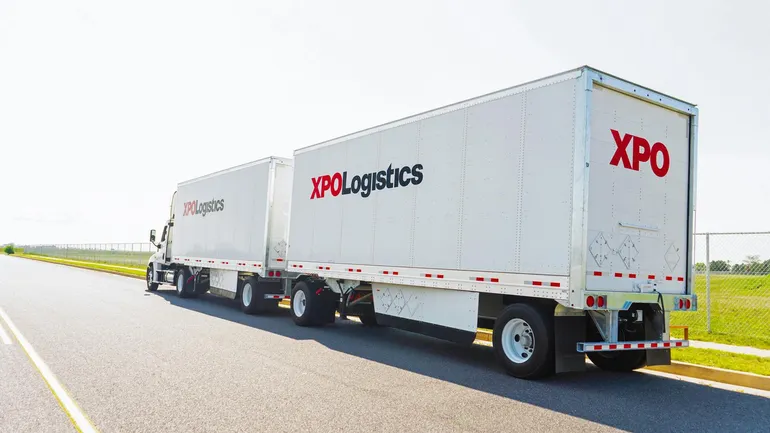Dive Brief:
- XPO reported it is not seeing “a lot of direct conversion” from LTL to truckload, CEO Mario Harik said in an April 30 earnings call.
- Still, with truckload rates being lower “there might be more combinations into truckload happening,” Harik said. But he noted that when truckload rates rise, the freight might come back to LTL.
- In the soft freight market, the logistics company’s shipments per day were down 5.8% during Q1 compared with a year ago, but it generated volume growth in the mid to high single digits in its local channel, which executives named as a key focus for XPO.
Dive Insight:
A softer economic environment and lower freight demand has led some freight to shift from LTL to truckload as shippers capitalize on historically low rates, but XPO executives said they’re seeing less of the direct conversion trend, according to the company’s earnings call.
XPO is, however, seeing consolidation of shipments into truckload, which the carrier said has always happened.
“Companies have used [Transportation Management Systems] for decades now. And what TMSs do is that they look at if you don’t have a service requirement and you can combine things into a truckload, you will combine it,” Harik said.
LTL makes up a big portion of XPO’s business, with North American LTL contributing $1.17 billion of its overall $1.95 billion in revenue in Q1. The carrier said it is the fourth largest LTL carrier by 2024 revenue metrics of $4.9 billion, according to an earnings presentation. Shippers turning away from LTL could hurt its business.
But when asked about share loss to other modes, such as TL, Harik said he doesn’t “see any structural changes in how LTL freight is being moved across the country.”
There has, however, been a decline in freight volumes and industrial demand over the past two to three years. “This is an opportunity potentially for the industry to see that volume come back when things turn the corner from an industrial production perspective,” Harik told analysts.
On the other hand, carriers such as ArcBest reported freight migrating over to truckload due to the excess capacity in the truckload space, according to the company’s April 30 earnings call.
“From what we saw in 2024, we think that freight is going to eventually flow back to the LTL space when the market flips. But we’ve been encouraged by ultimately what our customers are looking for, and that’s efficiency in supply chain,” ArcBest President Seth Runser said.
